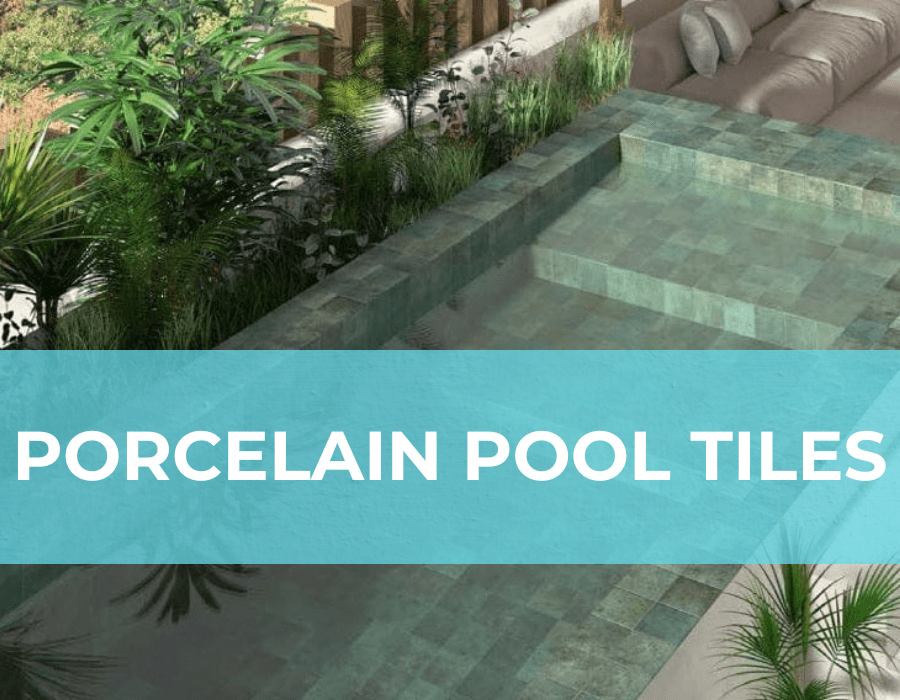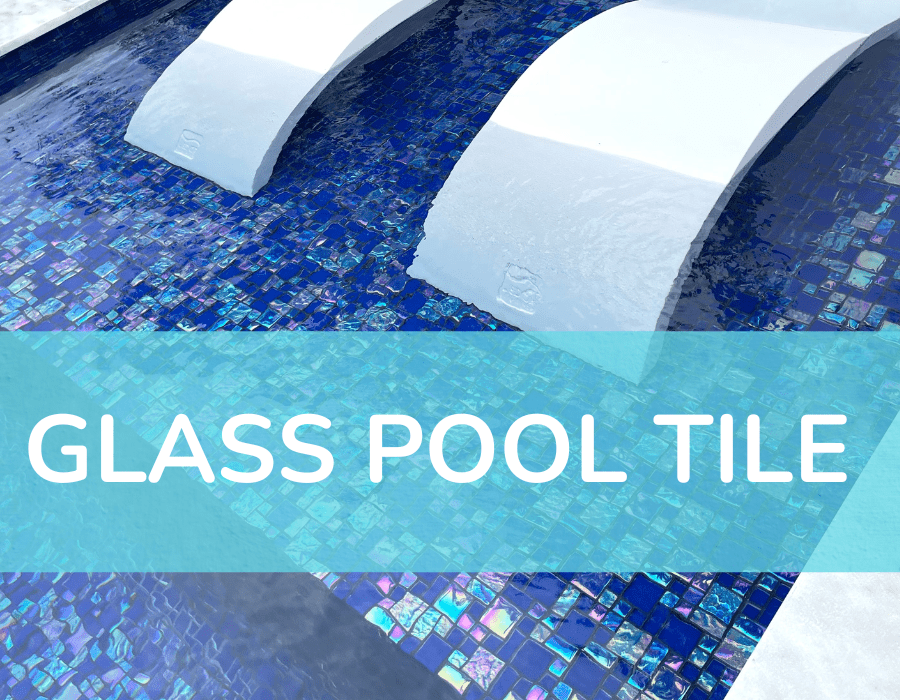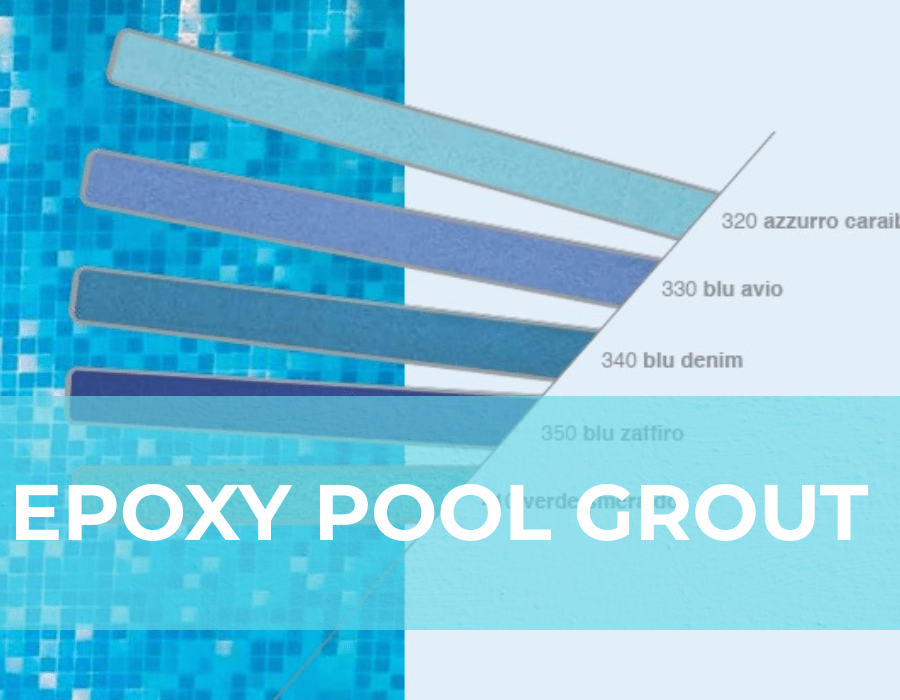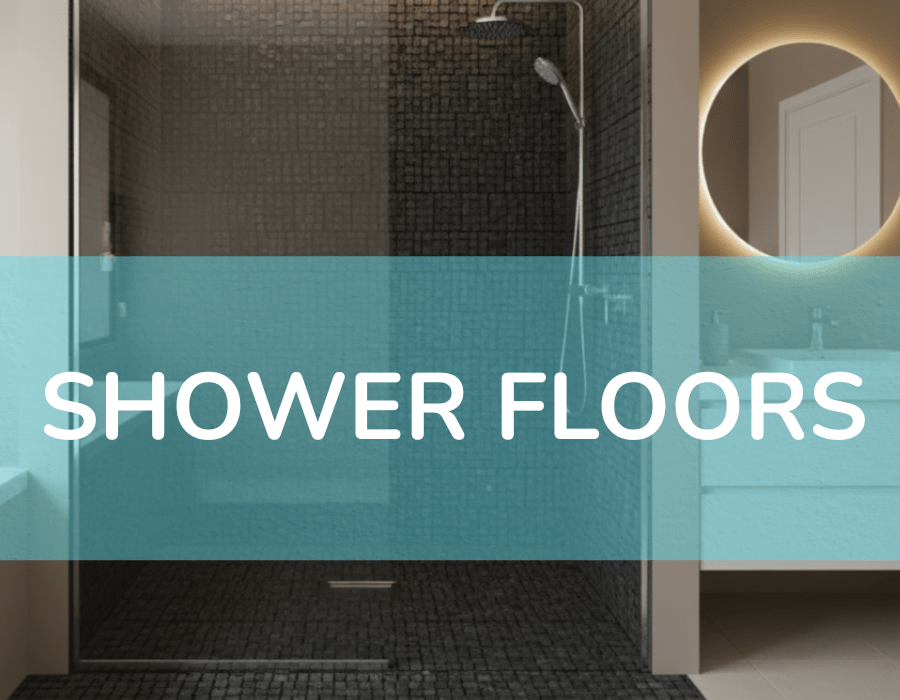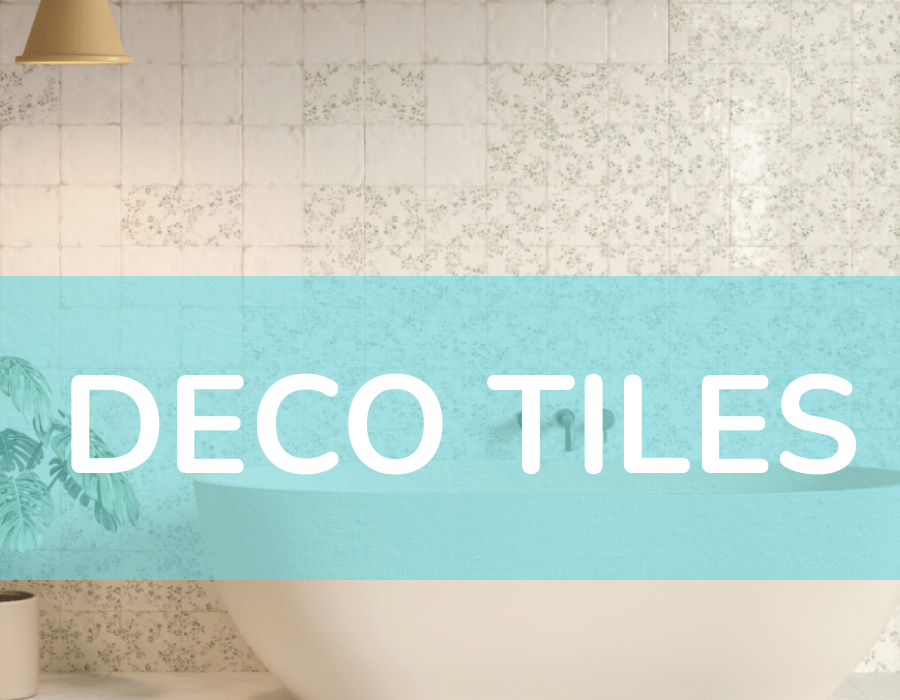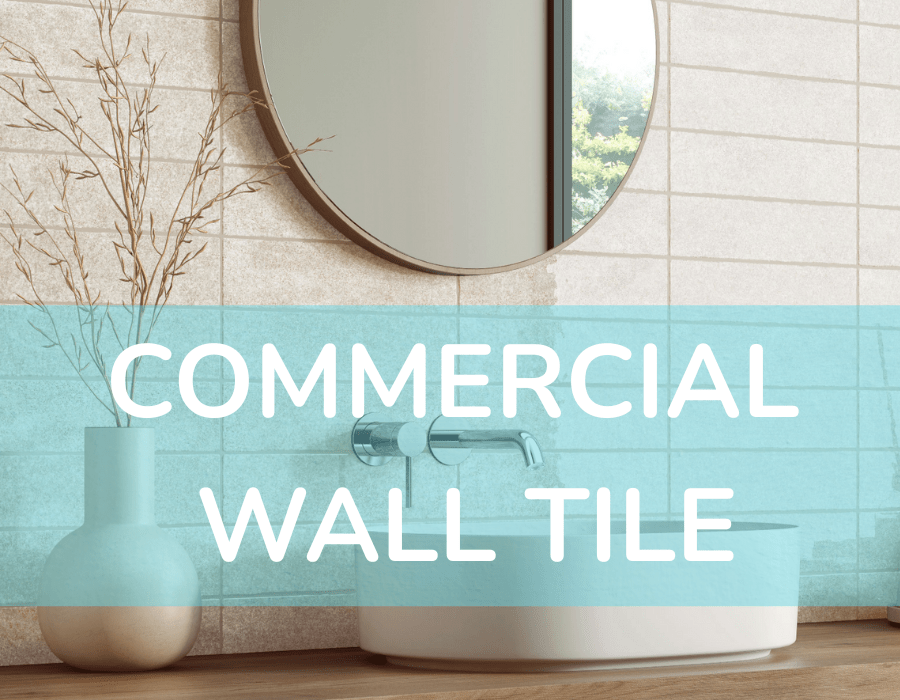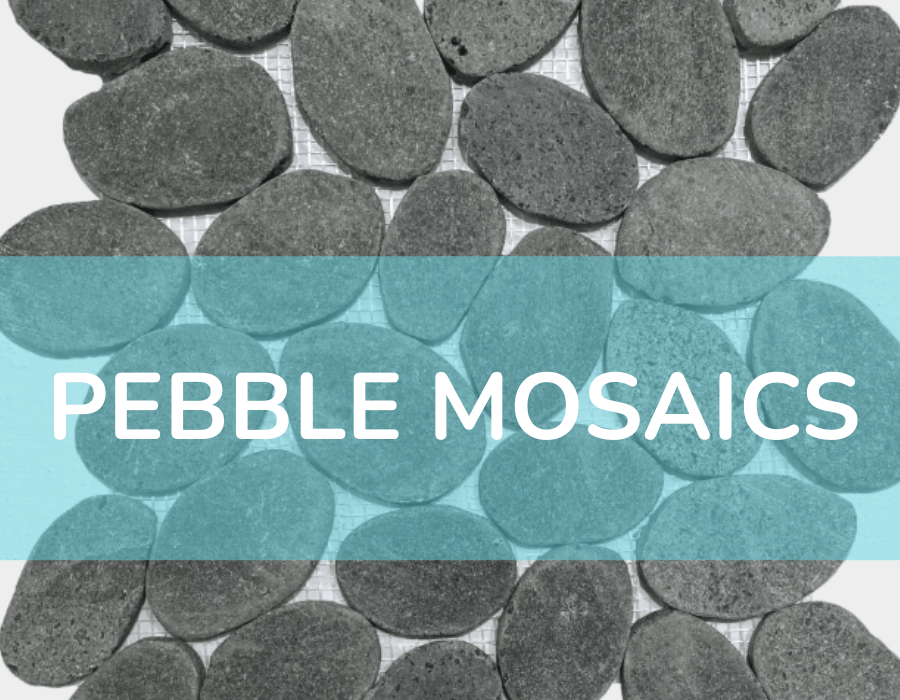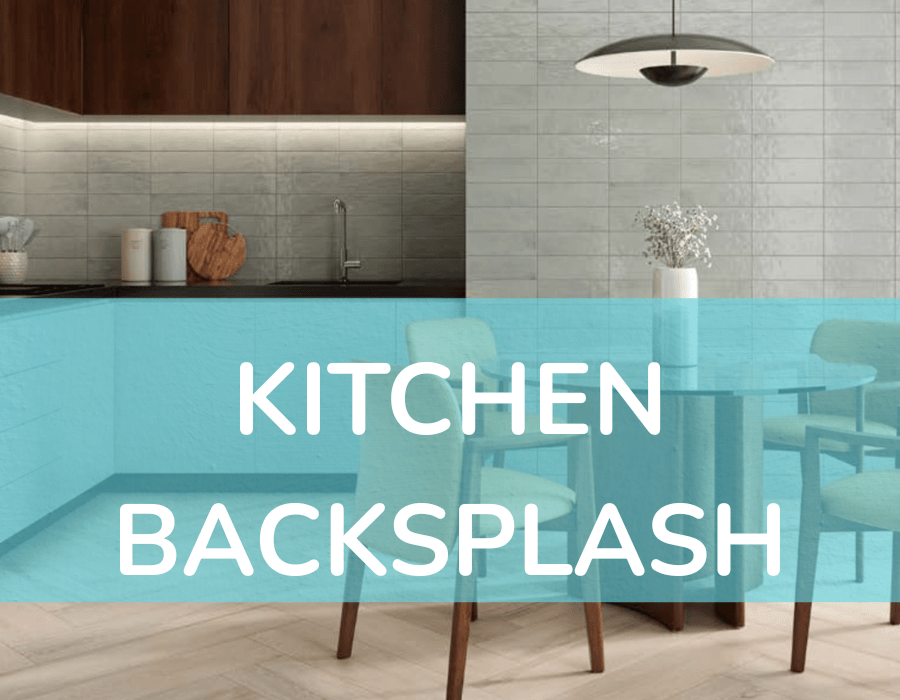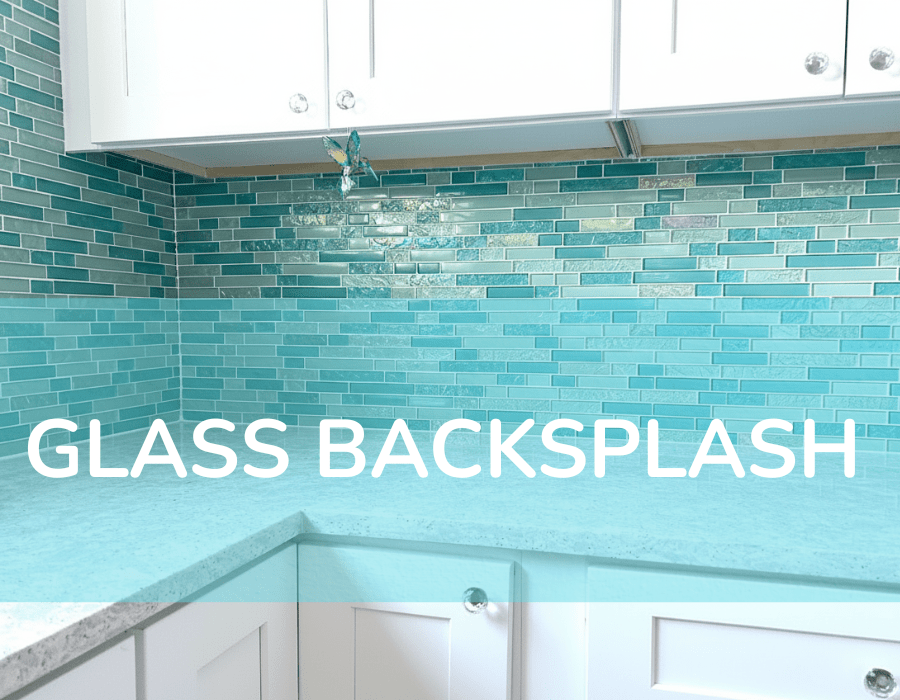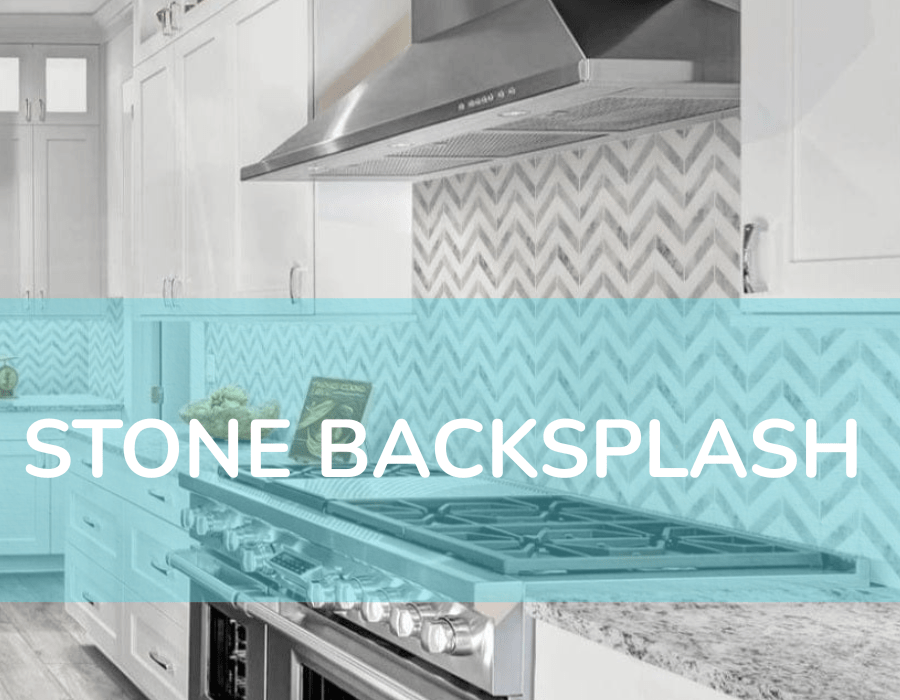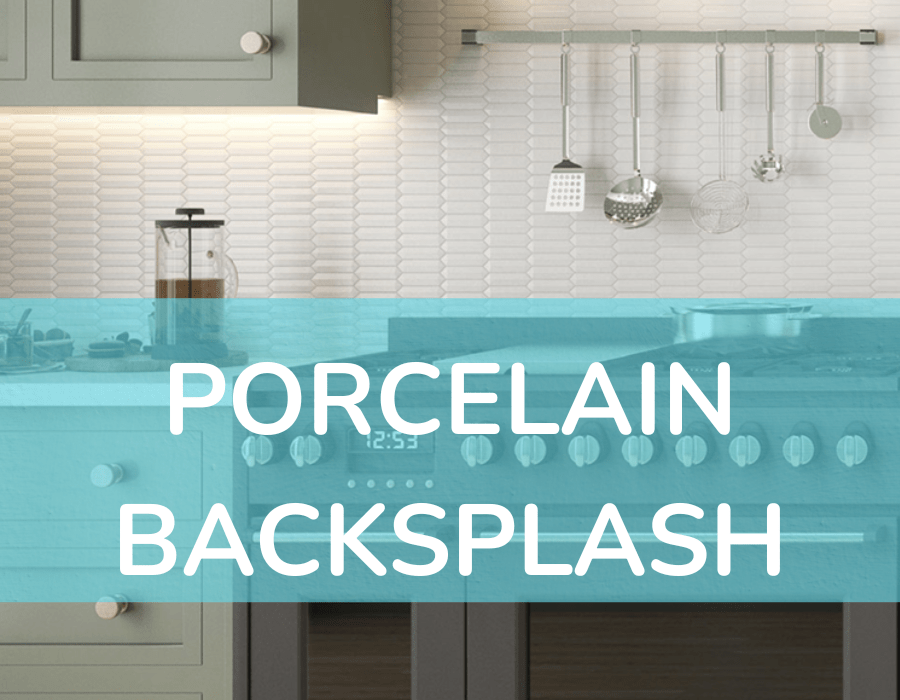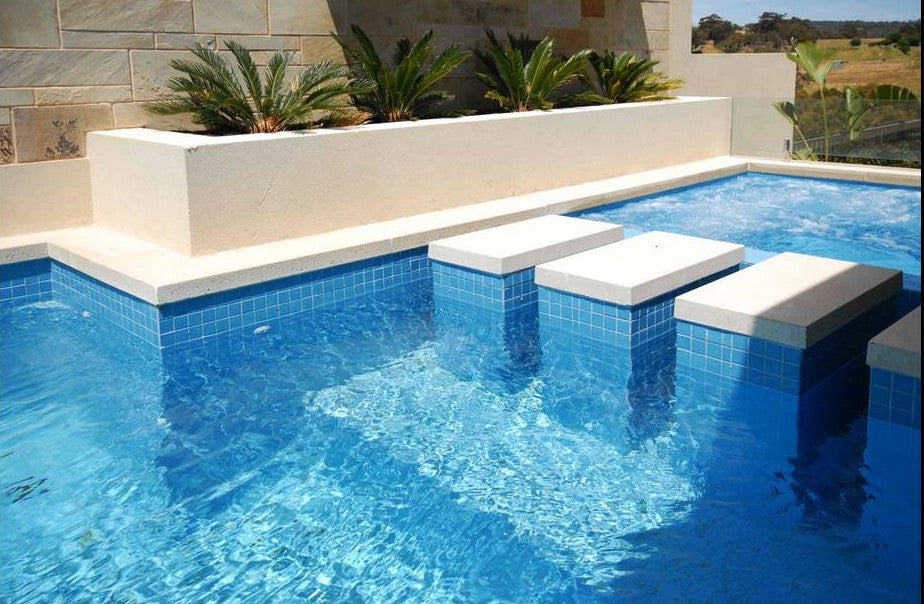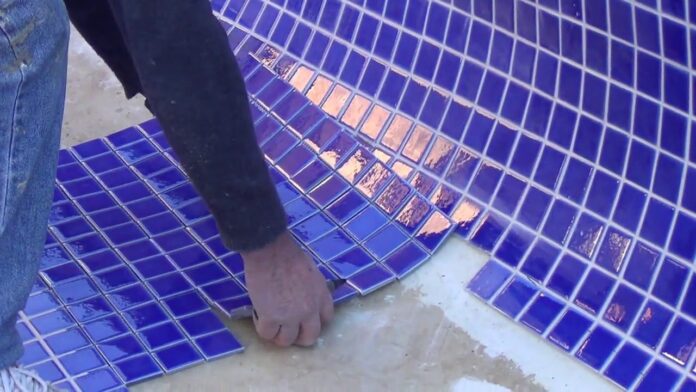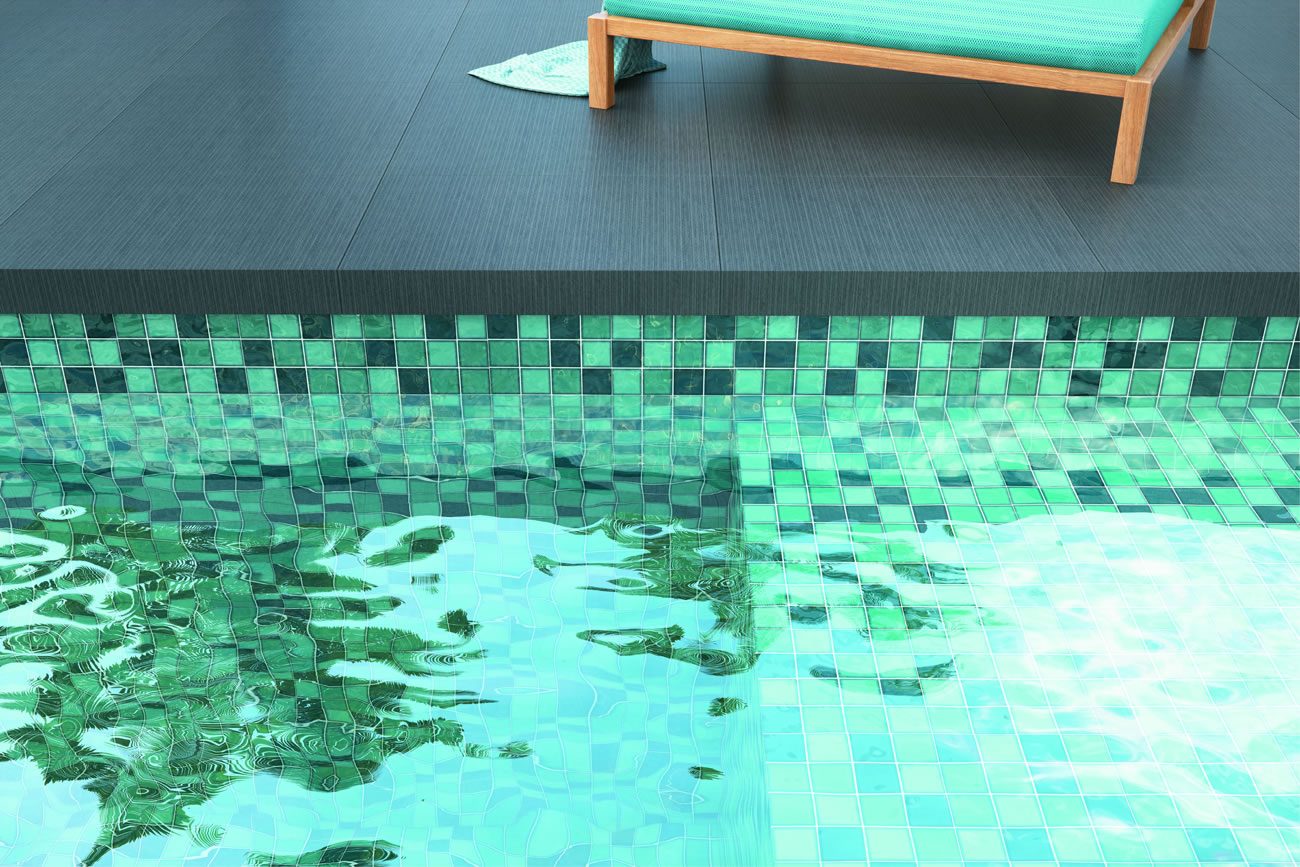
Pool Tile Materials 101: A Comprehensive Guide
If you are building a new house or already have one, you must know that every corner of the house needs attention and care. From installation to maintenance, no home can remain spotless and shiny without appropriate supervision.
If we talk about the outdoors, the swimming pool area is the main attraction of any house. It resides outside most homes and needs more care and attention, from Pool Tile to furniture to water maintenance appliances.
But a question arises: Can any tile type be installed in your pool area?
The answer is no! Swimming pool tiles are designed to fight UV rays, water resistant, slip resistant, and alluring by looks. While it might appear simple to choose tiles, there's more to it than meets the eye.

Where Exactly is the Pool Tile Installed?
People consider three major tiling styles in their swimming pools: waterline, border and steps, and feature walls. People can pick them according to their liking and budget. All of them look great in looks and durability. Installing tiles increases the life of the pool and gives it an appealing look in the long run.
Waterline Tile: The first common spot for pool tile is at the waterline, like the pool's "fill line." It's at the pool rim under the coping. This serves two purposes. First, it acts as a barrier against scum and debris that collect at the waterline, preventing stains on the pool's edge. Second, it enhances the pool's look, adding to its visual appeal.
Borders and Steps: The second area for tiles is around the edges and steps. These tiles help define features in the pool and prevent steps from blending into the background. This improves safety and creates an interesting visual aspect.
Water Features and Feature Walls: Water features and feature walls are where aesthetics become more prominent. These areas need water-resistant tiles that also enhance visual appeal. Contractors often get creative with colorful, shaped, and mosaic tiles to make these areas stand out.
Fully Tiled Pools: Some pools are completely tiled, which looks impressive but comes with challenges. Maintenance becomes more complex as tiles can crack, shift, or come off, leading to repairs. Finding matching tiles or grout colors might be tricky, and skilled contractors for such work could be hard to find.
Consider the potential costs and challenges before opting for a fully tiled pool. Are you prepared for repairs and setbacks? If so, ensure you hire experts to minimize future problems. Fully tiled pools are less common due to these factors.
Common Types of Pool Tile Materials
There are so many types of tiles available in the market. Some people prefer longevity, while others prefer looks and bling. Here we have a comprehensive list of different kinds of tile materials so you can conveniently consider their pros and cons.
1. Ceramic Tiles
Ceramic tiles are the most wanted choice for pool surfaces due to their affordability, wide array of color and pattern options, and ability to resist chemicals. These tiles are fired at high temperatures, yielding durability suitable for pool water conditions.
Pros:
Cost-effective: Ceramic tiles offer budget-friendly options for pool projects.
Variety of Designs and Colors: You can select from diverse visual options.
Chemical and Stain-Resistant: The tiles can withstand pool chemicals and are less prone to staining.
Easy to Maintain: Simple cleaning routines keep ceramic tiles looking great.
Cons:
-
Lower Durability: While durable, they might not match the longevity of specific alternatives.
Prone to Damage and Cracking: Ceramic tiles are delicate, so it is easily breakable by any heavy impact of water or object. If not taken care of appropriately, these tiles will crack or damage in no time.
2. Porcelain Tiles
Like ceramic tiles, porcelain tiles are fired at higher temperatures, making them denser and more resilient. Their various styles and sizes provide a luxurious appearance for your pool area.
Pros:
High Durability: Porcelain tiles are hard-wearing and robust.
Low Water Absorption: They are less likely to absorb water, preventing potential damage.
Fade-Resistant: Porcelain's colors remain vibrant over time. They are timeless, classic, and never get old and out of fashion.
Wide Range of Options: You can select from diverse design choices.
Cons:
-
Costly Than Ceramic Tiles: Their enhanced durability can come with a slightly higher price tag. But these tiles are recommended by professionals because, once installed, they can go a long way.
3. Glass Tiles
Glass tiles are celebrated for their stunning visual effects, vibrant colors, and opulent appearance. They create a reflective surface within the water, commonly used as borders or in waterline designs.
Pros:
-
Unique Visual Appeal: Glass tiles are distinctive and eye-catching. Glass tiles are reflective and can create a beautiful illusion in the water. These tiles are by far the most alluring ones in the lot.
Resistant To Chemicals and Fading: They can withstand pool chemicals and maintain their colors longer.
Easy to Clean: Their smooth surface simplifies cleaning efforts. Pool tile cleaner works best on these tiles.
Reflective Properties: Glass tiles create mesmerizing reflections in the water. Iridescent tile is the most prominent example of such tile, and they create an extraordinary fusion beneath the water.
Cons:
Most Expensive: These intricate, beautiful tiles are more expensive than ceramic and porcelain because of their delicate raw materials.
Need Professional Installation: Their delicate nature might necessitate skilled installation. DIY or self-installation can't bring that precision and intricacy you desire.
4. Natural Stone Tiles
Natural stone tiles like travertine, limestone, and slate bring a timeless and organic feel to pool surfaces. Available in various finishes and colors, they add an element of elegance to your pool area.
Pros:
-
Unique Appearance: Natural stone tiles offer a distinct and authentic look.
Durable and Long-Lasting: They possess durability and strong feature for lasting use.
Heat-Resistant: Natural stone tiles can withstand high temperatures without damage.
Non-Slip Surfaces Available: Natural stones are highly resistant to slippery surfaces. These are the best options when the pool surroundings are prone to algae.
Cons:
-
Higher Maintenance Requirements: Natural stone tiles demand more upkeep to preserve their appearance.
Prone to Staining and Chemical Damage: Selecting the right stone type is crucial to avoid potential issues. Professional guidance will be required to choose the best stone for your pool.
5. Mosaic Tiles
Mosaic tiles, composed of small pieces, enable intricate patterns, designs, or images. They often infuse artistic flair into pool surfaces or as decorative elements. These blue-hued tiles are most popular as they give the swimming pool area an artistic and contemporary look.
Pros:
-
Artistic and Customizable Designs: Mosaic tiles offer creative opportunities for personalization.
Stunning Visual Effects: Their combination of colors and patterns can create captivating visuals.
Suitable for Everyone: Most pool enthusiasts choose mosaic tiles because of their timeless characteristics.
Cons:
-
Installation Is Time-Consuming: Arranging small pieces requires meticulous work. Only skilled and professional tile makers can create a perfect design with mosaic tiles.
Fluctuating Cost: Elaborate designs can escalate costs. These tiles need extreme attention and precision, so a skilled professional asks for a higher price.
6. Concrete Tiles
Concrete tiles, or cement tiles, are durable and versatile. They can be tailored with various colors, patterns, and textures to match your pool design.
Pros:
-
Customizable Designs: Concrete tiles come with many designs and patterns. It gives you complete freedom to create your own design by mixing and matching various tiles.
Durable and Sturdy: They provide lasting performance. Concrete is one of the strongest materials used for tiles. They do not break or crack easily.
Best Alternative to Expensive Material: Concrete tiles can imitate pricier choices. It looks expensive and fancy, but it is affordable in price.
Cons:
-
May Require Sealing: Sealing is necessary to maintain their appearance. Without a proper sealing, concrete tiles can cause staining and breakage. To prevent damage to a tile, it is advised to seal it properly.
Susceptible to Cracking: Proper installation is essential to avoid potential issues. One must take the services of a skillful professional to install these tiles. Otherwise, a lousy installation can cost you a cracking and breakage of a tile.
Selecting the ideal Pool Tile material significantly impacts your pool's looks and functionality. By thinking about aspects like how it looks, how tough it is, safety, upkeep, and cost, you can choose your tiles according to your needs wisely. Whether you go for ceramic, porcelain, glass, natural stone, mosaic, or concrete tiles, your pick will shape a lovely, welcoming pool area that lasts.
We at Tiles and Deco can make your dream swimming pool according to your wishes and choices. Visit our website now and select your favorite marble, concrete, or Mosaic Glass Tile at the most affordable price.
FAQs
What are tank tiles made of?
Tank tiles are crafted from various materials, with multiple prices to consider. Regarding materials, you'll likely decide between three main types: porcelain, glass, or stone tiles.
What is the regular pool tile size?
The regular size of tiles is 6" x 6". This size is commonly used for tiles and is available in various materials like ceramic, stone-look, and porcelain.
What is the best pool tile cleaner?
You'll need vinegar, tap water, and a pool brush to clean your tiles like this. Mix the water with vinegar, then gently scrub each tile using the brush.

